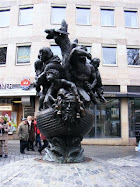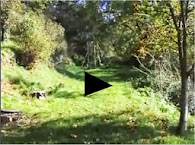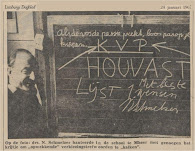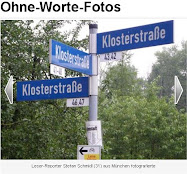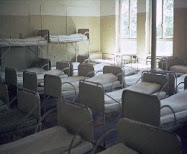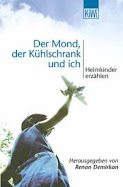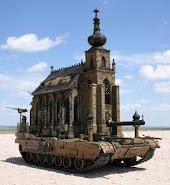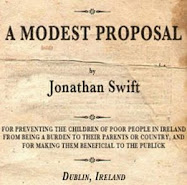Kalai, like many other villages in Bangladesh, appears a rural idyll at first sight. But several villagers here have resorted to selling organs to pay back microcredit loans that were meant to lift them out of poverty. Journalist Sophie Cousins reports on an alarming consequence of the microfinance revolution.
Vatican City, 31 October 2013 (VIS) - “Trafficking in human beings:
modern slavery. Destitute peoples and the message of Jesus Christ” is
the title of the seminar which, following a wish expressed by Pope
Francis, has been organised by the Pontifical Academies of Sciences and
of the Social Sciences, together with the FIAMC (the World Federation
of Catholic Medical Associations).
The seminar, which
will take place from 2 to 3 November in the Vatican's Casina Pio IV,
will be attended by twenty-two participants from various countries and
international organisations, including the Nigerian Joy Ngozi Ezeilo, United Nations special
rapporteur on Trafficking in Persons, especially women and children,
and the Spanish doctor Professor Jose Antonio Lorente, scientific
director of the Centro Pfizer – Junta de Andalucia Centre for Genomics
and Oncological Research (GENYO) of the University of Granada, Spain.
These lenders were originally set up to help lift people out of
poverty by offering small loans to people who do not qualify for
traditional banking credit, to encourage entrepreneurship and empower
women.
Green rice paddies surround the dusty, narrow road to the
heart of Kalai, a village six hours north of Dhaka, in Bangladesh's
Jotpurhat district. Children play naked, hanging off stringy bits of
bamboo that hold up the makeshift hut they live in.
They, like millions of other rural
Bangladeshis, grow up facing a life of hardship. In an attempt to
alleviate poverty, countless numbers take on debt with microcredit
lenders, only to find themselves in a difficult situation when they are
unable to repay the loan.
Some have even turned to selling their organs as a last resort to repay the loans and escape the vicious cycle of poverty.
The idea of selling organs is not new and those in poverty
throughout South Asia have resorted to it for years. But what is less
known, is that more people are turning to the trade because of feeling
under pressure to pay back microcredit lenders.
The
workshop aims “to establish the real state of this phenomenon and an
agenda to combat this heinous crime. For example, the natural sciences
today can provide new tools that can be used against this new form of
slavery, such as a digital registry to compare the DNA of unidentified
missing children (including cases of illegal adoption) with that of
their family members who have reported their disappearance”, writes
Bishop Marcelo Sanchez-Sorondo, chancellor of the Pontifical Academies
of Sciences and of the Social Sciences.
“No one can
deny that 'the trade in human persons constitutes a shocking offence
against human dignity and a grave violation of fundamental human
rights', and is an accelerator of criminal profits in this new century.
The Second Vatican Council itself observed that 'slavery, prostitution,
the selling of women and children, and disgraceful working conditions
where people are treated as instruments of gain rather than free and
responsible persons' are 'infamies' which 'poison human society' … and
constitute 'a supreme dishonour to the Creator'”.
According
to the recent UNODC Report on Trafficking, “the International Labour
Organisation estimated that between 2002 and 2010 '20.9 million people
were victims of forced labour globally. This estimate also includes
victims of human trafficking for labour and sexual exploitation, 60% of
whom are girls.
Human organ trafficking reaches almost
1% of that figure, thus affecting around 20,000 people who are forced
or deceived into giving up an organ, such as the liver, kidney,
pancreas, cornea, lung and even the heart”.
“Some observers speculate that, within ten years,
human trafficking will surpass drugs and weapons trafficking to become
the most profitable criminal activity in the world”, reiterated Bishop
Sanchez-Sorondo.
“International sex trafficking is
not limited to poor and undeveloped areas of the world – it is a
problem in virtually every region of the globe. Countries with large
(often legal) sex industries create the demand for trafficked women and
girls, while countries where traffickers can easily recruit provide
the supply. Generally, economically depressed countries provide the easiest recruitment for trafficking”.
He
concluded by recalling that, during the canonisation of the Mexican
saint, Guadalupe Garcia Zavala, Pope Francis said that the work the
saint carried out with the poor, the abandoned, the sick and the
marginalised, “taught us this behaviour: not to feel ashamed, not to
fear, not to find 'touching Christ's flesh' repugnant. … Pope Francis'
words are a clear reaction, following Jesus Christ's message, to this
new form of contemporary slavery which constitutes an abhorrent
violation of the dignity and rights of human beings”.
Selling a kidney
Mohammad Akhtar Alam, 33, bears a 15-inch scar on his stomach
where he had a kidney removed. The organ removal - which is illegal in
Bangladesh unless the organ is being given to a spouse or family member -
combined with the inadequate post-operative care he received, has left
him partially paralysed, with only one eye working and unable to do any
heavy lifting.
To earn money, he runs a small shop in the village that sells rice, flour and the occasional sweet treat.
A couple of years ago Mr Alam's income from
driving a van was not enough to make the weekly loan repayments he was
required to make from up to eight different non-governmental
organisations (NGOs) which lend microcredit.
"One day [a man] rode in my van and asked me why I was doing this," he recalls.
"I told him that I was very poor and that I had loans from
seven or eight NGOs. I owed about 100,000 taka [$1,442; £900] and I
could not return the money to the NGOs. I used to try and sell furniture
and things for cooking to try to repay the money."
Mr Alam had got caught in a web of loans in which he first
borrowed money from one NGO and, when he was unable to pay it off, he
borrowed from other NGOs.
His passenger worked as a middleman between organ seller and
recipient and persuaded him to sell a kidney, promising 400,000 taka
($6,360; £4,000).
Seventeen days later, Mr Alam says he returned home from a
private hospital in Dhaka, barely alive and carrying only a fraction of
the money he was promised.
"I agreed to sell my kidney because I couldn't return the
money to the NGOs. As we are poor and helpless, that is why we are bound
to do this. I regret it," he says.
Mohammad Moqarram Hossen, also from Kalai, is another victim.
"I took the decision to return the money I borrowed from
NGOs," he says as he reveals the scar he has been left following an
operation in India to remove his kidney.
"The doctor told me there was no risk but now I can't do any heavy work. I can't work."
How many loans?
Microcredit, hailed as a saviour for millions, aims to break
the cycle of poverty by stimulating income-generating activities through
providing collateral-free loans.
But its repayment structure and the apparent inability of
microfinance institutions to determine whether borrowers have multiple
loans with other institutions rarely come under scrutiny.
Consequently, it can create a vicious cycle in which
borrowers borrow money from other NGOs to repay existing loans, leaving
many unable to repay and some to take extreme measures such as selling
organs to make repayments.
Professor Monir Moniruzzaman from the
Department of Anthropology at Michigan State University has been
researching the organ trade in Bangladesh for 12 years and says some
people feel they are left with no choice but to sell a body part.
"A lot of people's debt from NGOs has spiralled out of
control. Because they cannot repay the loans, there is only one way for
people to get out and that is to sell their kidney," he says.
His research into Bangladesh's organ trade reveals that of
the 33 kidney sellers he interviewed, some had sold their organs due to
feeling under pressure to repay loans.
He alleges that NGO officials, from organisations such as
Grameen Bank and BRAC, among others, pressure people into repaying loans
by sitting all day long at the defaulter's house, verbal harassment and
threatening to file a police case.
"One of the sellers mentioned that he left his village for
about a year for not being able to face the NGO officials," Professor
Moniruzzaman says.
"The social and economic pressures from NGOs was unbearable so he decided to sell his kidney to pay off his loan."
Grameen Bank denies harassment or applying any such pressure.
It points out that it has never lodged a case against a borrower for
failing to pay a loan.
"Our approach does not require that," Mohammed Shahjahan,
the bank's acting managing director, told the BBC. He says that because
Grameen does not impose any penalty for failure to repay debts and
because borrowers are free to reschedule their loans at any point there
is no pressure.
"Most borrowers have savings in their accounts more than or
equivalent to at least 75% of their loan amount. As a result they are
not in a 'distress' situation at any point for payment of their
instalments," he says.
And Mohammad Ariful Hoq, an analyst at BRAC, one of the
largest development organisations in the world, says repayments for
their clients are "not a very big issue" - their interest rate is 27%;
Grameen's maximum interest rate is 20%.
BRAC denies pressuring borrowers or that there could be any link between microcredit and organ trafficking.
"In our work that doesn't happen because we don't create any extra pressure on our borrowers," Mr Hoq says.
Throughout the microfinance sector, interest is calculated on
the declining balance - which means that rather than charging interest
on the original loan amount it is charged only on the amount of money
that remains in the borrower's hands as the loan is repaid.
Mr Hoq does admit that one-third of their 4.3
million borrowers have multiple loans: "You'll find people who are
taking three loans from different organisations. There is a 30% overlap
for micro-finance institutes in Bangladesh."
However he says there is no systematic way to check if
borrowers have loans with other institutions so lenders are unable to
determine a borrower's risk or their level of debt. BRAC says that one
method they use is to knock on a neighbour's door and ask them about
their friend's economic situation. Grameen Bank says that it also has
checks to see if borrowers have multiple loans.
But analysts maintain that in practice such checks are very
difficult to carry out and it is far from certain that banks are always
able to get an accurate assessment of a borrower's credit history.















































